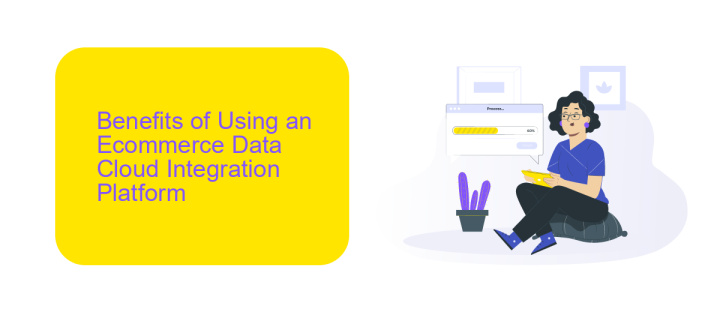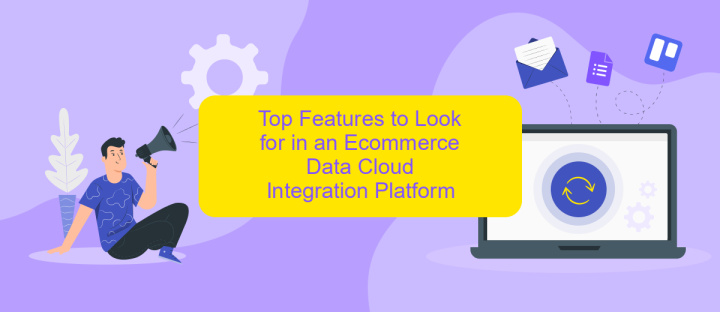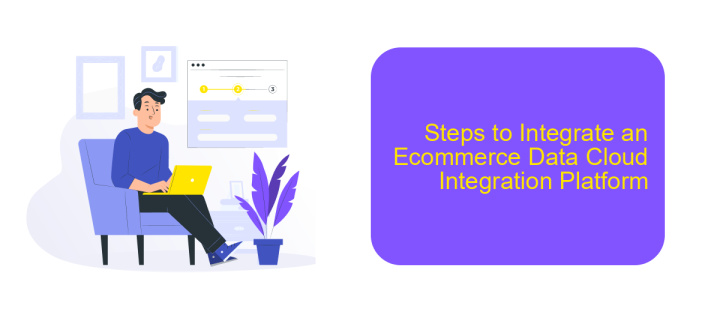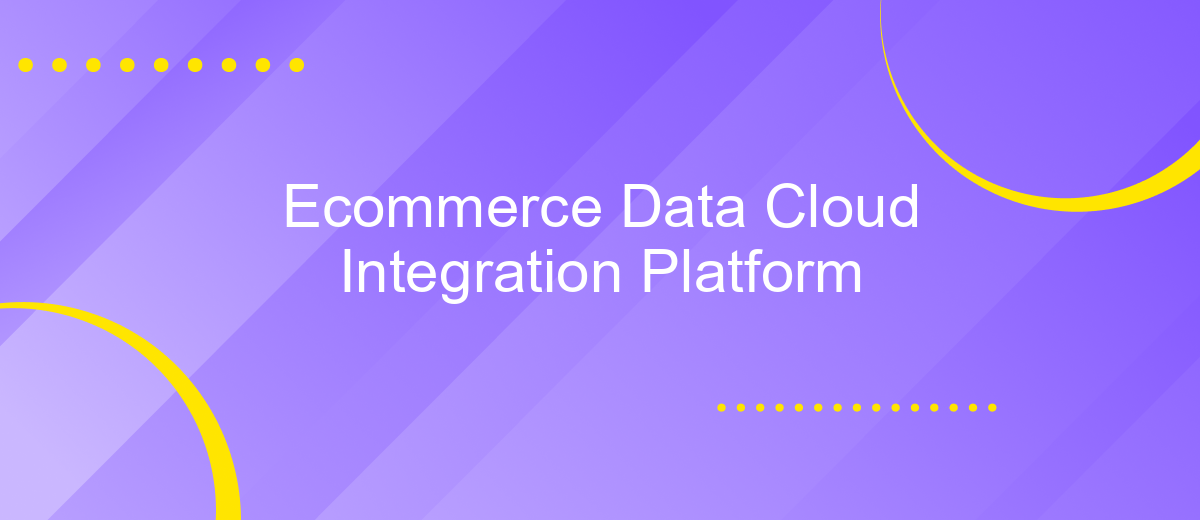Ecommerce Data Cloud Integration Platform
In today's rapidly evolving digital marketplace, businesses must harness the power of data to stay competitive. The Ecommerce Data Cloud Integration Platform offers a seamless solution to unify, analyze, and leverage data from diverse sources. By integrating real-time insights, this platform empowers businesses to make informed decisions, optimize operations, and enhance customer experiences, driving growth and innovation in the ecommerce sector.
Introduction to Ecommerce Data Cloud Integration Platforms
Ecommerce Data Cloud Integration Platforms are essential tools for modern businesses, enabling seamless connectivity between various e-commerce systems and cloud-based applications. These platforms facilitate the automation of data transfer, ensuring that all relevant information is synchronized in real-time, which is crucial for maintaining accurate and up-to-date records.
- Automated data synchronization
- Real-time updates
- Enhanced data accuracy
- Scalability and flexibility
- Improved operational efficiency
One such platform is ApiX-Drive, which simplifies the integration process, allowing businesses to connect their e-commerce systems with a wide range of cloud services without the need for extensive technical knowledge. By leveraging platforms like ApiX-Drive, companies can streamline their operations, reduce manual data entry, and focus on growth and customer satisfaction.
Benefits of Using an Ecommerce Data Cloud Integration Platform

Implementing an Ecommerce Data Cloud Integration Platform offers numerous benefits, including streamlined data management and enhanced scalability. By centralizing all your ecommerce data, you can ensure real-time synchronization across various platforms, which leads to more accurate reporting and better decision-making. This seamless integration not only reduces the risk of data silos but also improves the overall efficiency of your business operations.
Additionally, utilizing a service like ApiX-Drive can significantly simplify the process of setting up and managing these integrations. ApiX-Drive provides a user-friendly interface that allows you to connect multiple applications without requiring extensive technical knowledge. This means you can automate workflows, reduce manual data entry, and focus more on strategic tasks. Ultimately, an Ecommerce Data Cloud Integration Platform combined with tools like ApiX-Drive can lead to improved productivity, cost savings, and a more agile business environment.
Top Features to Look for in an Ecommerce Data Cloud Integration Platform

When choosing an Ecommerce Data Cloud Integration Platform, it's crucial to focus on key features that ensure seamless data management and integration. These features help streamline operations, improve data accuracy, and enhance overall business performance.
- Scalability: The platform should accommodate growing data volumes and integrate with various ecommerce tools.
- Real-time Data Sync: Ensure that the platform offers real-time data synchronization to keep your business operations up-to-date.
- User-friendly Interface: A simple and intuitive interface can significantly reduce the learning curve and operational errors.
- API Integration: Robust API capabilities, like those offered by ApiX-Drive, allow seamless connections between different systems and services.
- Security: Data security is paramount. The platform should offer advanced encryption and compliance with industry standards.
- Customizability: Look for a platform that allows customization to fit specific business needs and workflows.
By focusing on these features, businesses can ensure they select an Ecommerce Data Cloud Integration Platform that not only meets their current needs but also supports future growth and innovation.
Steps to Integrate an Ecommerce Data Cloud Integration Platform

Integrating an Ecommerce Data Cloud Integration Platform can significantly enhance your business operations by centralizing data and streamlining workflows. The process involves several key steps to ensure a seamless integration.
First, assess your current ecommerce setup and identify the data sources you need to integrate. This includes your online store, CRM systems, marketing tools, and any other platforms that hold valuable customer or sales data. Understanding your data flow is crucial for effective integration.
- Choose a reliable integration platform like ApiX-Drive.
- Connect your ecommerce platforms and data sources to ApiX-Drive.
- Configure data mapping to ensure accurate data transfer between systems.
- Set up automated workflows to synchronize data in real-time.
- Test the integration thoroughly to identify and resolve any issues.
Once the integration is complete, monitor the performance and make necessary adjustments to optimize data flow. Utilizing platforms like ApiX-Drive can simplify the process, providing a user-friendly interface and robust support for various ecommerce tools. This ensures your business can leverage integrated data for better decision-making and improved customer experiences.
- Automate the work of an online store or landing
- Empower through integration
- Don't spend money on programmers and integrators
- Save time by automating routine tasks
Case Studies and Success Stories of Ecommerce Data Cloud Integration Platforms
One prominent example of a successful Ecommerce Data Cloud Integration Platform is the case of an online retail company that managed to streamline its operations by integrating multiple data sources using ApiX-Drive. Before the integration, the company faced challenges in synchronizing inventory, customer data, and sales analytics across various platforms. By utilizing ApiX-Drive, they automated data flows between their ecommerce store, CRM, and analytics tools. This resulted in a 30% increase in operational efficiency and a significant reduction in manual data entry errors.
Another success story involves a mid-sized ecommerce business that struggled with fragmented customer data across different marketing channels. By implementing a cloud integration platform, they unified their customer profiles and gained deeper insights into consumer behavior. The integration facilitated targeted marketing campaigns and personalized customer experiences, ultimately boosting their conversion rates by 25%. These case studies highlight the transformative impact of ecommerce data cloud integration platforms in enhancing business performance and customer satisfaction.
FAQ
What is an Ecommerce Data Cloud Integration Platform?
Why is cloud integration important for ecommerce businesses?
How can an Ecommerce Data Cloud Integration Platform improve customer experience?
What are the common challenges in integrating ecommerce data?
How can businesses automate ecommerce data integration processes?
Time is the most valuable resource for business today. Almost half of it is wasted on routine tasks. Your employees are constantly forced to perform monotonous tasks that are difficult to classify as important and specialized. You can leave everything as it is by hiring additional employees, or you can automate most of the business processes using the ApiX-Drive online connector to get rid of unnecessary time and money expenses once and for all. The choice is yours!


